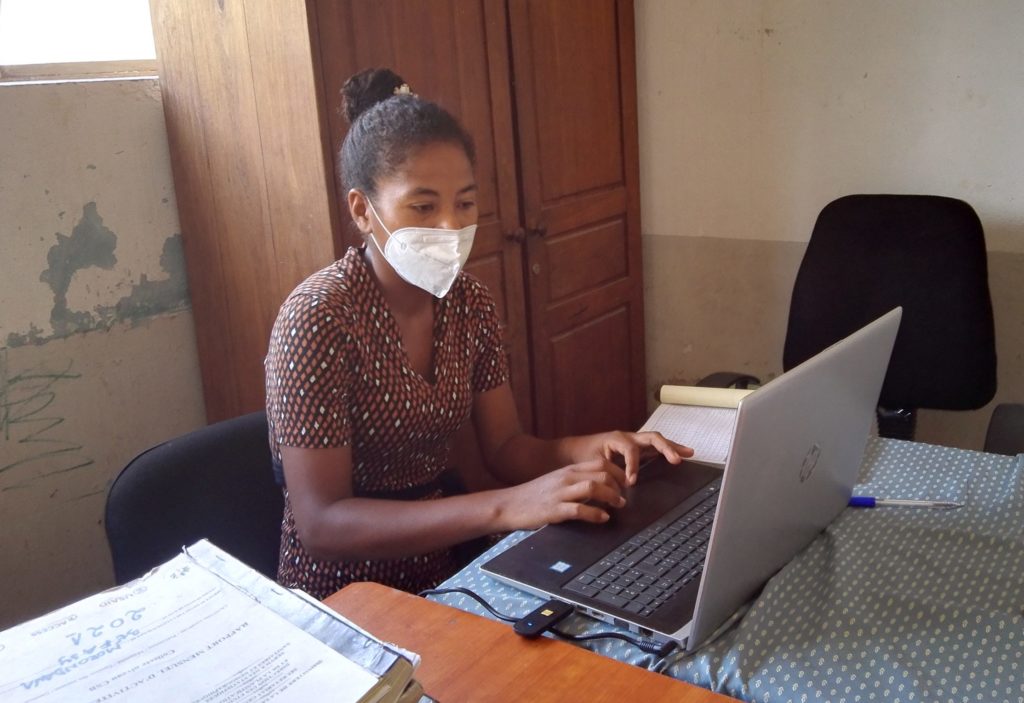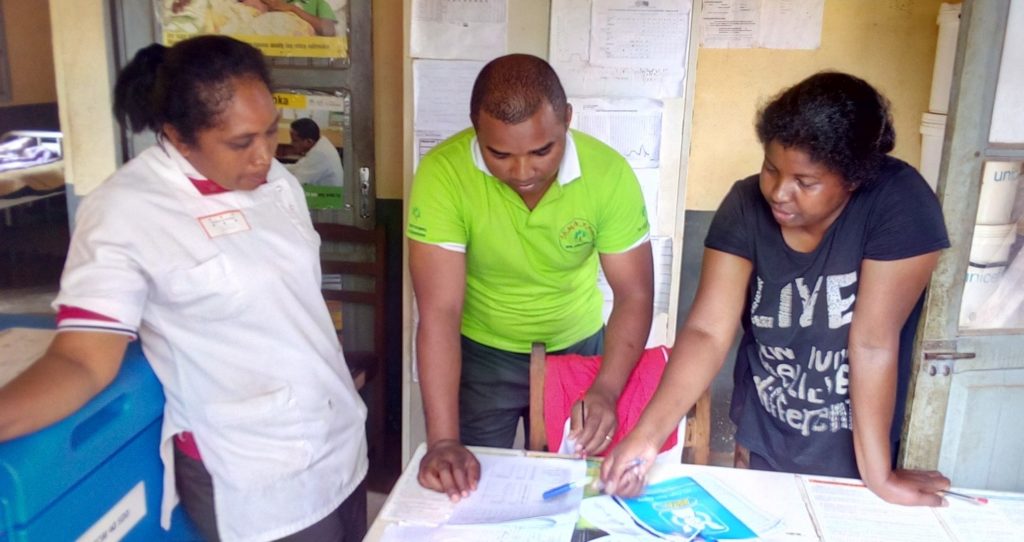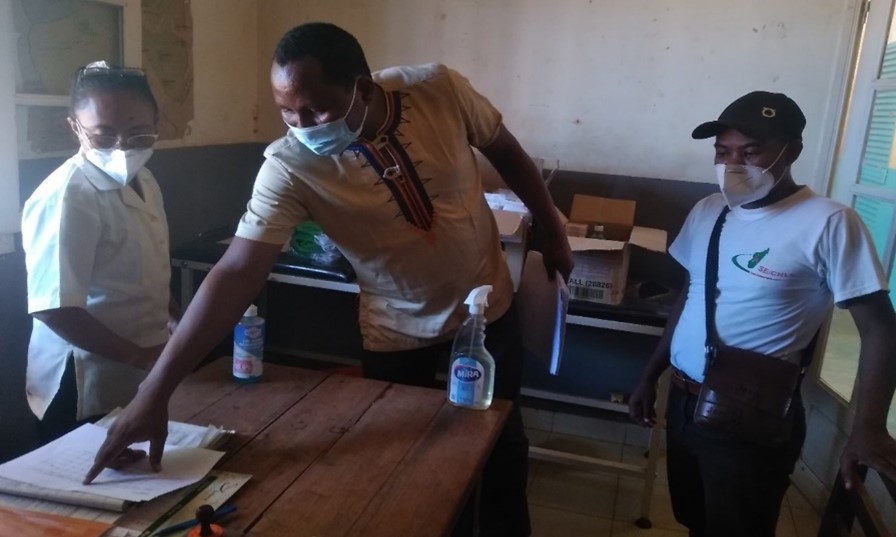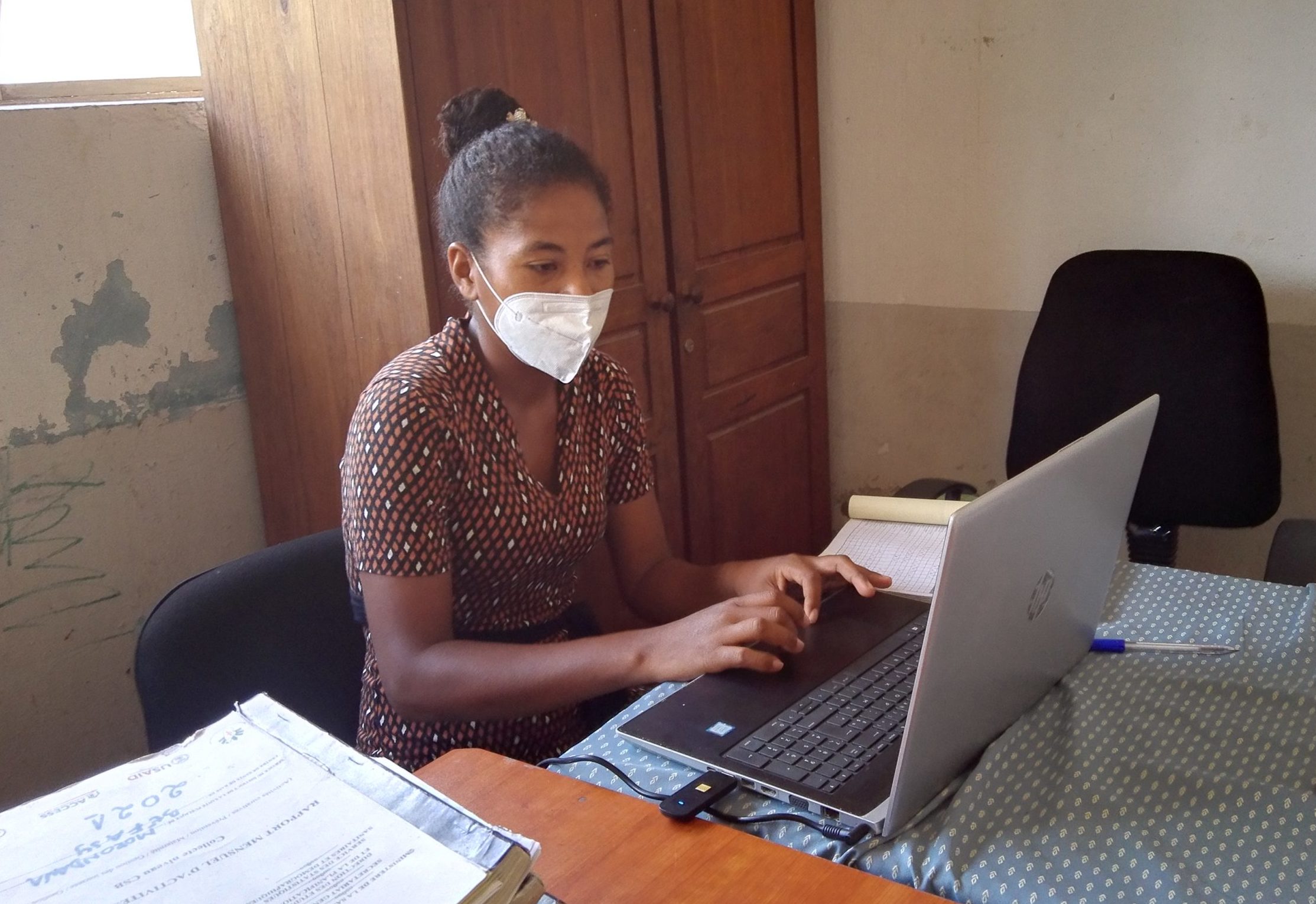Coaching and mentorship approach promotes capacity strengthening in reporting, analysis, and use of health data among subnational staff in Madagascar

World Malaria Day 2021 amplifies the continuing fight to reach zero malaria. PMI Measure Malaria (PMM) is working with the National Malaria Control Program (NMCP) and Directorate of Studies, Planning, and Information Systems (DEPSI) in Madagascar towards this goal by ensuring staff are well equipped to use data in the fight against malaria. Through a coaching and mentorship approach, PMM delivers targeted knowledge transfer and capacity strengthening in data reporting, analysis, and use of routine health data in the District Health Information System 2 (DHIS2), Madagascar’s national health information system platform.
Since 2019, Madagascar’s NMCP, with support from implementing partners, has coached district-level staff to improve data analysis and use as part of their strategy to improve monitoring and evaluation (M&E) practices at the subnational level. However, a lack of standardized guidelines led to inconsistent approaches in coaching among the NMCP M&E team. In 2020, as part of USAID/PMI Madagascar’s joint efforts with the NCMP to strengthen malaria surveillance, the NMCP M&E team worked with PMM to develop two tools aimed to improve M&E practices at the subnational level. The first was a guidance document to encourage a more consistent way to conduct coaching for data analysis and use in the field by defining the role of the coach, the elements of a coaching field visit, performance indicator, and a field report template to document action items. The second was an interactive Excel sheet for rapid data quality validation. After its development and finalization, the NMCP piloted the coaching guide before implementing it in three districts (Fenoarivobe, Maevatana and Ihosy).

Following the Madagascar Ministry of Public Health’s integration of routine malaria data from the global web malaria system to DHIS2 in October 2020, PMM conducted a training for central-level staff on the use of the DHIS2, data analysis, and the World Health Organization (WHO) data quality review tool, which is integrated into the DHIS2. However, there was still a need to transfer this knowledge on the use of the WHO data quality review tool to district level data managers, who are currently responsible for reporting facility-level data into the platform. In the interest of developing a sustainable method to engage and train district-level managers, DEPSI worked with PMM to establish a coaching plan, whereby each central-level DHIS2 administrator oversees a number of regions and districts on their use of DHIS2 by verifying the completeness and timeliness of data and troubleshooting any challenges. Through this process, the NMCP and DEPSI also strengthened their coaching and mentorship capacity at the central level as well as their ownership on the use of DHIS2 for malaria data. This in turn garnered trust in the integrated system among subnational staff and enabled more district staff to enter, analyze, and visualize malaria data. The implementation of this coaching strategy enabled an increase in data quality by increasing the completeness (86 percent to 91 percent) and timeliness (54 percent to 81 percent) of all health data entered into the DHIS2 by district-level staff.

Staff who have engaged in mentorship activities with the NMCP and DEPSI spoke to how their participation impacted their work. Ratafikarivo Fionona Lahatse, the malaria focal point person for the Maevatanana district (Betsiboka region), noted that “these activities have allowed us to [better] understand the importance of good quality data, and to facilitate decision-making and undertake actions to improve malaria control.” Venerozia Marie Théodore, the malaria program and communication focal point in the Analamanga region, stated that the mentorship facilitated “improvements in data quality, [more] timely analysis of data for better, faster decision making, and timely retrospective data.” Rasoavelomanana Tsimaniry Jemima, data manager in the Morondava district (Menabe region), said, “before, we had to use Excel for generating graphs to analyze data. Now, I can view graphs directly in DHIS2, and I can also use the GIS module. All this has allowed us to improve the presentation of data and discussions during our data reviews at the district level.”
